- Home
- Robert Hugh Benson
The Dawn of All Page 2
The Dawn of All Read online
Page 2
(I)
The first objects of which he became aware were his own handsclasped on his lap before him, and the cloth cuffs from whichthey emerged; and it was these latter that puzzled him. Soengrossed was he that at first he could not pay attention to thestrange sounds in the air about him; for these cuffs, thoughblack, were marked at their upper edges with a purpled line suchas prelates wear. He mechanically turned the backs of his handsupwards; but there was no ring on his finger. Then he lifted hiseyes and looked.
He was seated on some kind of raised chair beneath a canopy. Acarpet ran down over a couple of steps beneath his feet, andbeyond stood the backs of a company of ecclesiastics--secularpriests in cotta, cassock, and biretta, with three or fourbare-footed Franciscans and a couple of Benedictines. Ten yardsaway there rose a temporary pulpit with a back and asounding-board beneath the open sky; and in it was the tallfigure of a young friar, preaching, it seemed, with extraordinaryfervour. Around the pulpit, beyond it, and on all sides to animmense distance, so far as he could see, stretched the heads ofan incalculable multitude, dead silent, and beyond them againtrees, green against a blue summer sky.
He looked on all this, but it meant nothing to him. It fitted onnowhere with his experience; he knew neither where he was, nor atwhat he was assisting, nor who these people were, nor who thefriar was, nor who he was himself. He simply looked at hissurroundings, then back at his hands and down his figure.
He gained no knowledge there, for he was dressed as he had neverbeen dressed before. His caped cassock was black, with purplebuttons and a purple cincture. He noticed that his shoes shonewith gold buckles; he glanced at his breast, but no cross hungthere. He took off his biretta, nervously, lest some one shouldnotice, and perceived that it was black with a purple tassel. Hewas dressed then, it seemed, in the costume of a DomesticPrelate. He put on his biretta again.
Then he closed his eyes and tried to think; but he could remembernothing. There was, it seemed, no continuity anywhere. But itsuddenly struck him that if he knew that he was a DomesticPrelate, and if he could recognize a Franciscan, he must haveseen those phenomena before. Where? When?
Little pictures began to form before him as a result of hisintense mental effort, but they were far away and minute, likefigures seen through the wrong end of a telescope; and theyafforded no explanation. But, as he bent his whole mind upon it,he remembered that he had been a priest--he had distinct memoriesof saying mass. But he could not remember where or when; he couldnot even remember his own name.
This last horror struck him alert again. _He did not know who hewas_. He opened his eyes widely, terrified, and caught the eye ofan old priest in cotta and cassock who was looking back at himover his shoulder. Something in the frightened face must havedisturbed the old man, for he detached himself from the group andcame up the two steps to his side.
"What is it, Monsignor?" he whispered.
"I am ill . . . I am ill . . . father," he stammered.
The priest looked at him doubtfully for an instant.
"Can you . . . can you hold out for a little? The sermonmust be nearly---"
Then the other recovered. He understood that at whatever cost hemust not attract attention. He nodded sharply.
"Yes, I can hold out, father; if he isn't too long. But you musttake me home afterwards."
The priest still looked at him doubtfully.
"Go back to your place, father. I'm all right. Don't attractattention. Only come to me afterwards."
The priest went back, but he still glanced at him once or twice.
Then the man who did not know himself set his teeth and resolvedto remember. The thing was too absurd. He said to himself hewould begin by identifying where he was. If he knew so much as tohis own position and the dresses of those priests, his memorycould not be wholly gone.
In front of him and to the right there were trees, beyond theheads of the crowd. There was something vaguely familiar to himabout the arrangement of these, but not enough to tell himanything. He craned forward and stared as far to the right as hecould. There were more trees. Then to the left; and here, for thefirst time, he caught sight of buildings. But these seemed veryodd buildings--neither houses nor arches--but something betweenthe two. They were of the nature of an elaborate gateway.
And then in a flash he recognized where he was. He was sitting,under this canopy, just to the right as one enters through HydePark Corner; these trees were the trees of the Park; that openspace in front was the beginning of Rotten Row; and SomethingLane--Park Lane--(that was it!)--was behind him.
Impressions and questions crowded upon him quickly now--yet innone of them was there a hint as to how he got here, nor who hewas, nor what in the world was going on. This friar! What was hedoing, preaching in Hyde Park? It was ridiculous--ridiculous andvery dangerous. It would cause trouble. . . .
He leaned forward to listen, as the friar with a wide gestureswept his hand round the horizon. "Brethren," he cried, "Lookround you! Fifty years ago this was a Protestant country, and theChurch of God a sect among the sects. And to-day--to-day God isvindicated and the truth is known. Fifty years ago we were but ahandful among the thousands that knew not God, and to-day we rulethe world. 'Son of man, can these dry bones live?' So cried thevoice of God to the prophet. And behold! they stood up upon theirfeet, an exceeding great army. If then He has done such thingsfor us, what shall He not do for those for whom I speak? Yet Heworks through man. 'How shall they hear without a preacher?' Doyou see to it then that there are not wanting labourers in thatvineyard of which you have heard. Already the grapes hang readyto pluck, and it is but we that are wanting. . . . Send forththen labourers into My vineyard, cries the Lord of all."
The words were ill-chosen and commonplace enough, and uttered inan accent indefinably strange to the bewildered listener, but theforce of the man was tremendous, as he sent out his personalityover the enormous crowd, on that high vibrant voice thatcontrolled, it seemed, even those on the outskirts far up theroads on either side. Then with a swift sign of the cross,answered generally by those about the pulpit, he ended his sermonand disappeared down the steps, and a great murmur of talk began.
But what in the world was it all about, wondered the man underthe canopy. What was this vineyard? and why did he appeal toEnglish people in such words as these? Every one knew that theCatholic Church was but a handful still in this country.Certainly, progress had been made, but. . . .
He broke off his meditations as he saw the group ofecclesiastics coming towards him, and noticed that on all sidesthe crowd was beginning to disperse. He gripped the arms of thechair fiercely, trying to gain self-command. He must not make afool of himself before all these people; he must be discreet andsay as little as possible.
But there was no great need for caution at present. The oldpriest who had spoken to him before stepped a little in advanceof the rest, and turning, said in a low sentence or two to theBenedictines; and the group stopped, though one or two stilleyed, it seemed, with sympathy, the man who awaited him. Then thepriest came up alone and put his hand on the arm of the chair.
"Come out this way," he whispered. "There's a path behind,Monsignor, and I've sent orders for the car to be there."
The man rose obediently (he could do nothing else), passed downthe steps and behind the canopy. A couple of police stood therein an unfamiliar, but unmistakable uniform, and these drewthemselves up and saluted. They went on down the little pathwayand out through a side-gate. Here again the crowd was tremendous,but barriers kept them away, and the two passed on togetheracross the pavement, saluted by half a dozen men who were pressedagainst the barriers--(it was here, for the first time, that thebewildered man noticed that the dresses seemed altogetherunfamiliar)--and up to a car of a peculiar and unknown shape,that waited in the roadway, with a bare-headed servant, in somestrange purple livery, holding the door open.
"After you, Monsignor," said the old priest.
The other stepped in and sat down. The priest hesitated for aninstant, and
then leaned forward into the car.
"You have an appointment in Dean's Yard, Monsignor, you remember.It's important, you know. Are you too ill?"
"I can't. . . . I can't. . . ." stammered the man.
"Well, at least, we can go round that way. I think we ought, youknow. I can go in and see him for you, if you wish; and we can atany rate leave the papers."
"Anything, anything. . . . Very well."
The priest got in instantly; the door closed; and the nextmoment, through crowds, held back by the police, the great car,with no driver visible in front through the clear-glass windows,moved off southward.

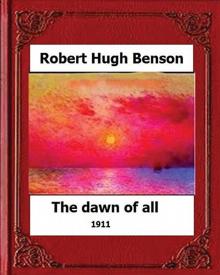 The Dawn of All
The Dawn of All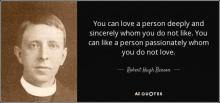 By What Authority?
By What Authority?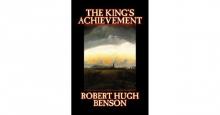 The King's Achievement
The King's Achievement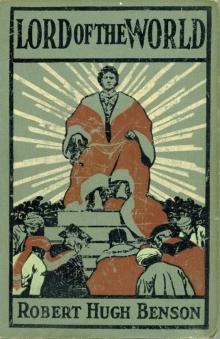 Lord of the World
Lord of the World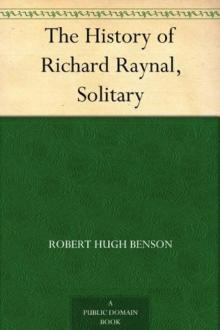 The History of Richard Raynal, Solitary
The History of Richard Raynal, Solitary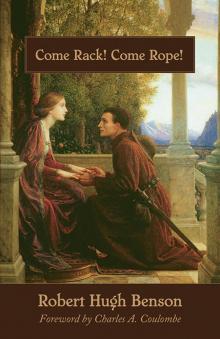 Come Rack, Come Rope
Come Rack, Come Rope